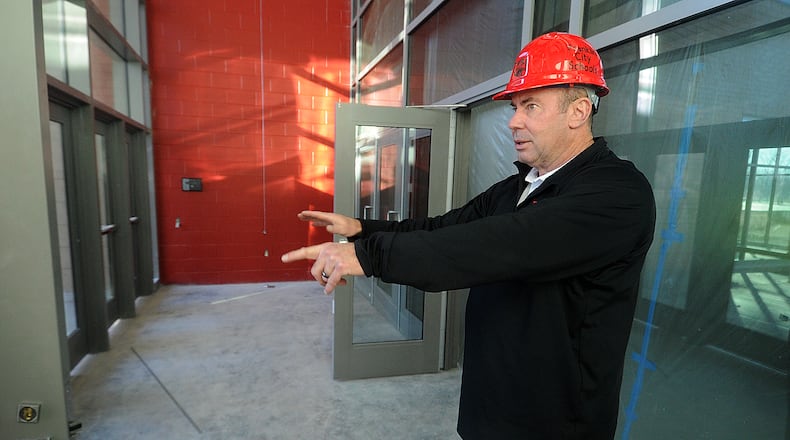“We understand that everyone lives on a tight budget and we are no different,” Hawley said. “The Board promised that the last levy would last 8-10 years and they maintained that promise by making it last 10 years.”
Franklin most recently asked for a five-year, 13.92-mill “substitute” levy last May, which passed with 67% voting yes and 33% voting no. It generates $7.75 million a year and costs a property owner $488 per $100,000 of property valuation.
That substitute levy doesn’t immediately change revenues, Hawley said. Substitute levies can create an increase in revenue for the school district over years’ time, by allowing the existing tax rate, without reduction, to be applied if and when new homes are constructed.
The Franklin school district has had a comparatively low cash reserve in recent years, according to the five-year forecast that the school district is required to report to the state. The state recommends that districts carry 30 to 60 days of expenses, though that isn’t required. As of July 1, the district had $4.1 million in the bank, or about 10.5% of a year’s spending. That 10.5% figure would be among the very lowest in the Dayton region, according to recent DDN research.
Franklin schools’ cash reserve has been declining because the district has been increasingly deficit-spending the past three years — a $474K deficit in 2020-21, then $751K the next year, then a big jump to a $2.2 million deficit in 2022-23. District spending increased by roughly the same 4.5% each of the past two years, but revenue was unusually flat in 2022-23, leading to the larger deficit.
In its forecast, the district projected revenue to rise again to $38.4 million this school year and $39.8 million next year. Spending is forecast to rise another 3% this year, with nearly all of the recent spending increases tied to salary and benefits.
“We do not want to go out asking for money too early because we know it has an impact on our community,” Hawley said.
The district has noted on its website that its 2020 bond issue to construct new buildings wouldn’t be impacted by the new levy and construction would proceed regardless of operating expense cuts.
When voters approved the 13.92-mill substitute levy last May, it came on the second try, according to the Warren County Board of Elections. Franklin voters had rejected the same substitute levy in November 2022, by a 55-45 ratio.
Budget cuts
Franklin Schools made some budget cuts this year, announced after the November 2022 levy failed. The cuts totaled $1.1 million.
Those reduction plans included: cutting two custodial positions; two health aide positions; one bus route; one media (library) aide; absorbing the gifted coordinator position; cutting seven certified teaching positions; and cancelling the contract with Warren County Educational Services Center for Tier III aides at the high school.
Hawley said those position cuts were made through a combination of people leaving the district for other jobs, retirements and some layoffs.
If the levy does not pass in March, the district plans to make additional cuts. Anthony Wayne Elementary School would close, which would result in 13 jobs being lost, including one administrator, seven teachers and five non-teachers.
Hawley said there would be increases in pay-to-participate fees and increased class sizes too.
A group, “Vote for Franklin Schools,” advocating for the levy did not return emailed requests for comment.
About the Author

